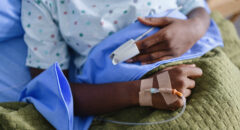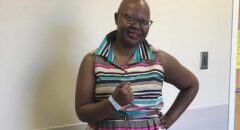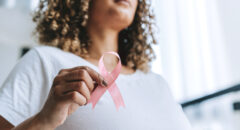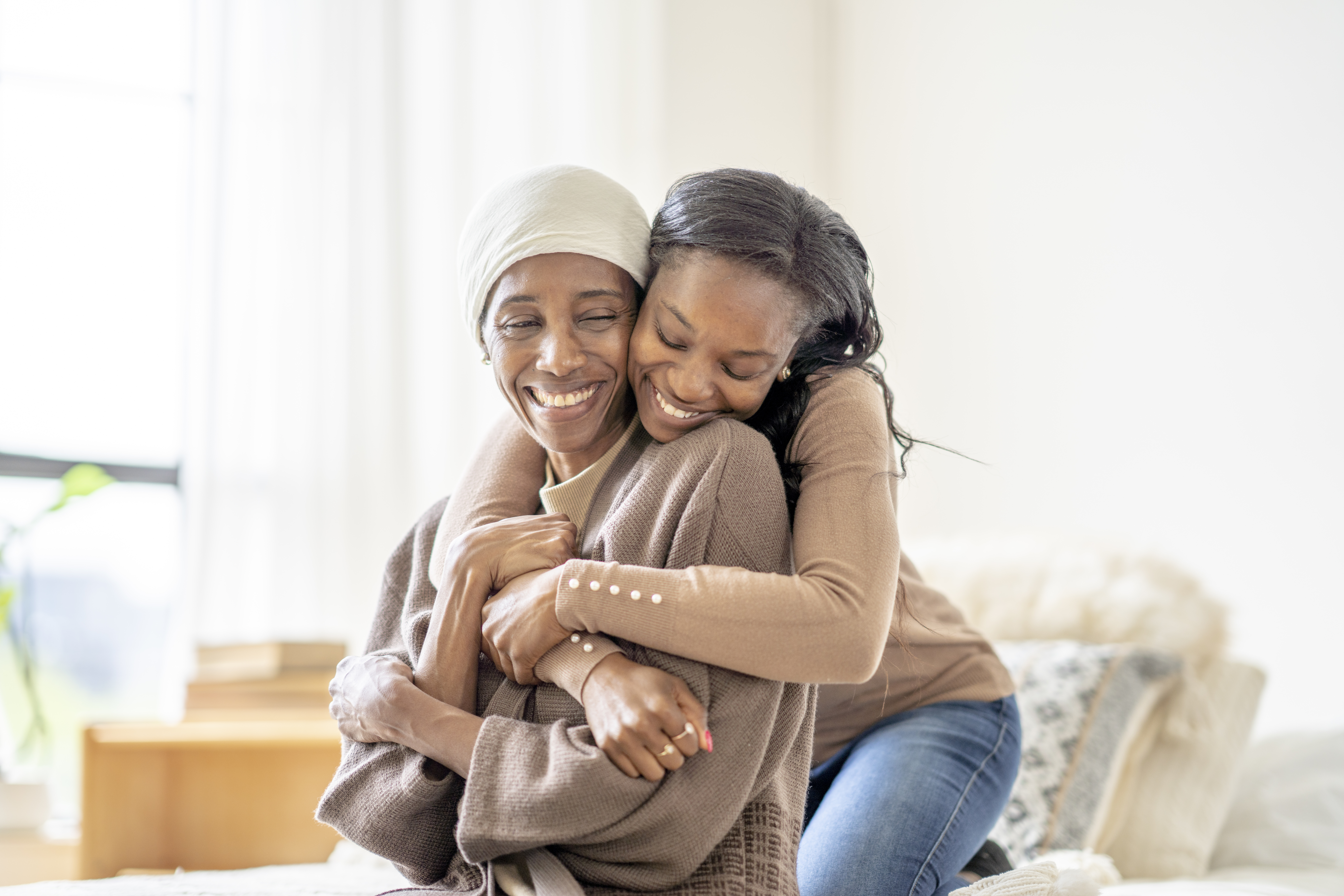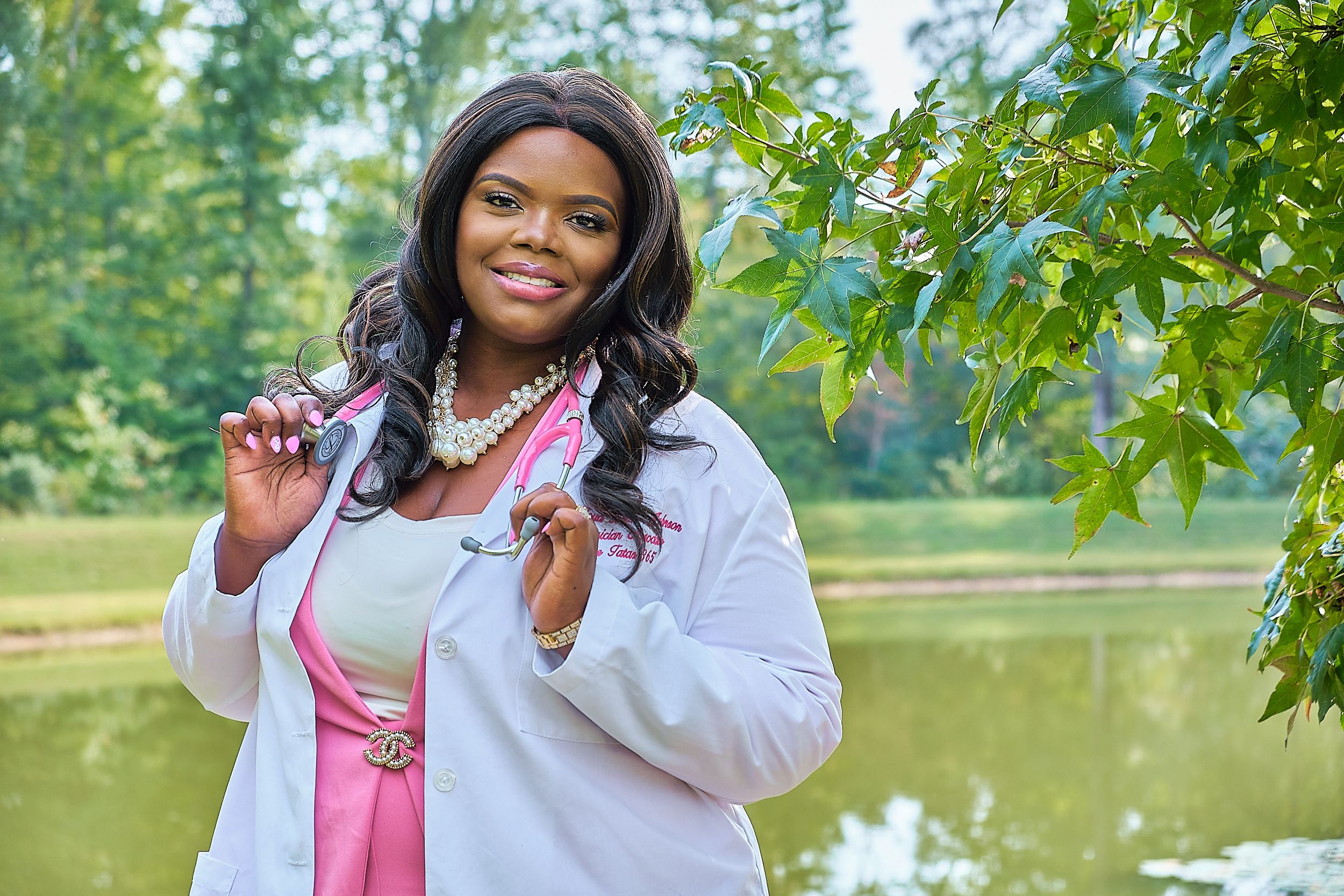
Imagine being a healthcare professional, confident in your knowledge and expertise, only to find yourself on the other side of the medical chart, diagnosed with a serious illness. This was the reality for LaToya Bolds-Johnson, a physician assistant, with 12 years of experience when she was diagnosed with triple-negative breast cancer at the age of 36 with no prior family history.
"I initially didn't think it was anything more than possibly a retained milk cyst," she recalls. "I had recently stopped breastfeeding, and I was working in the ER at the time."
Despite her instincts, Bolds-Johnson encountered resistance when she insisted on a mammogram that her doctor had ordered.
“The feedback that I received from the radiology tech at that time was…I think your physician made a mistake ordering the mammogram,” Bolds-Johnson adds. “I was like no she ordered it and I still [want it] done and so I had to push.”
The mammogram revealed abnormal findings, leading to a biopsy that she had to undergo without her husband by her side due to the pandemic.
During the biopsy or aspiration procedure, she vividly remembers thinking, "Man, I hope this is not cancer” as the lesion proved difficult to sample.
Bolds-Johnson was told she would get a call early the following week with her results, but the phone call never came. When she did receive the results, her worst fears were confirmed.
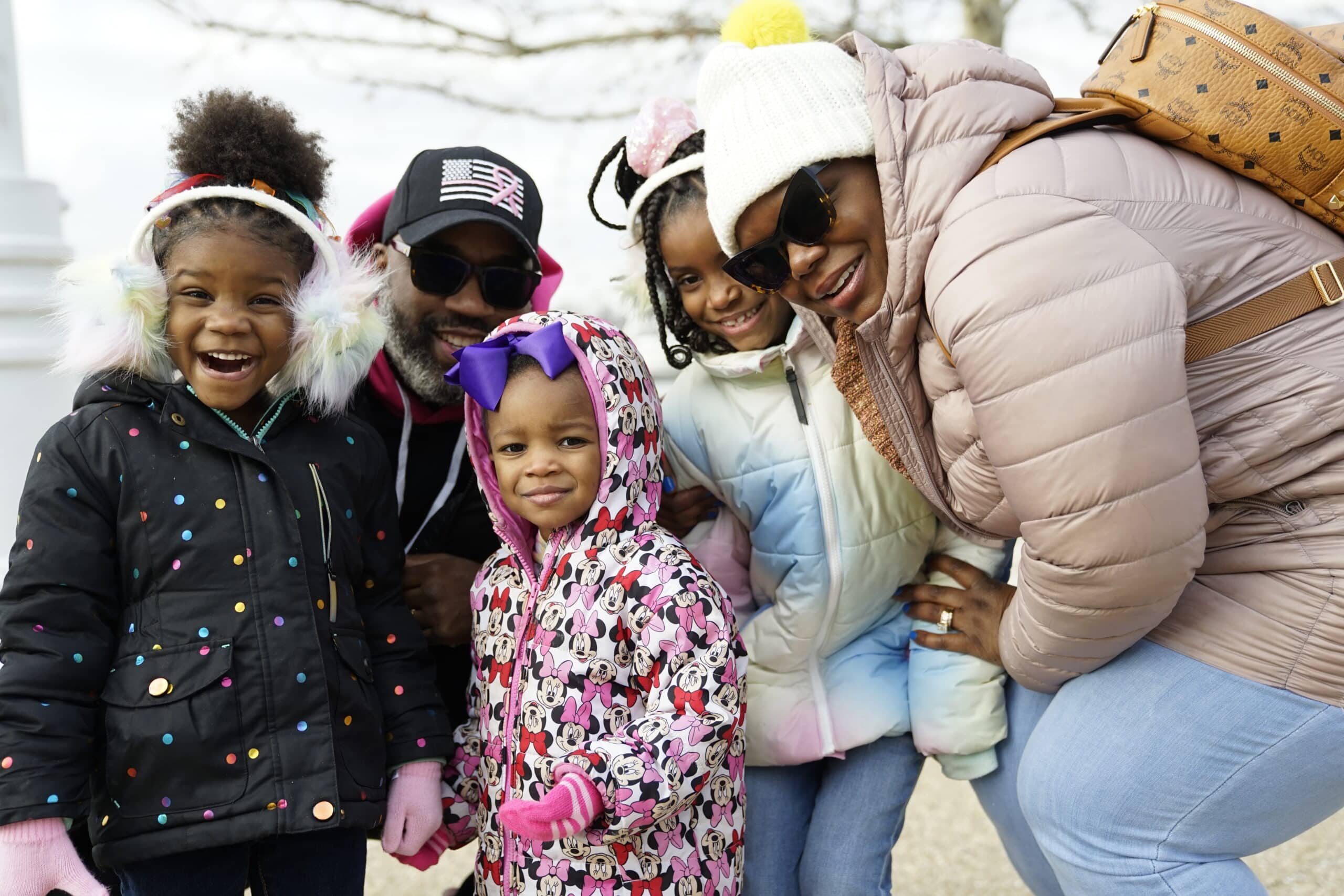
“I did not receive a phone call. Instead, I received a text message to my phone with my portal alert results and logins,” Bolds-Johns shares. “I clicked on the results and it showed a diagnosis of triple-negative invasive ductal carcinoma high grade 3.”
“I was actually in the middle of performing [a] procedure for a patient at the time and [my] immediate reaction is this is not for me – there's some type of mistake,” Bolds-Johnson adds.
Bolds-Johnson left work early and headed home in a state of panic. While in the driveway, she spoke to a nurse, who informed her that due to the 21st Century Cures Act, she was able to see her results in real time.
“It didn't occur to me that the Cures Act also allows for patients to receive…results before a physician has had a chance to relay the results and council with you,” Bolds-Johnson shares. “Those are very sensitive, life changer results and they should not be delivered via text message.”
While sitting in the driveway, Bolds-Johnson recalls her husband coming out of the house and immediately knowing something was wrong.
“We usually work 12-hour shifts and so this is midday and I'm sitting in the driveway and my husband comes out and he doesn't make it to the car because he knows that I'm never home early,” she adds. “I'll never forget it he just passed out on the ground – he immediately started yelling ‘no no no no no’.”
The next morning, Bolds-Johnson’s results were confirmed by a radiologist, who she says lacked sympathy for the way she received the news.
Throughout her journey, Bolds-Johnson has learned the importance of self-advocacy, especially for Black women.
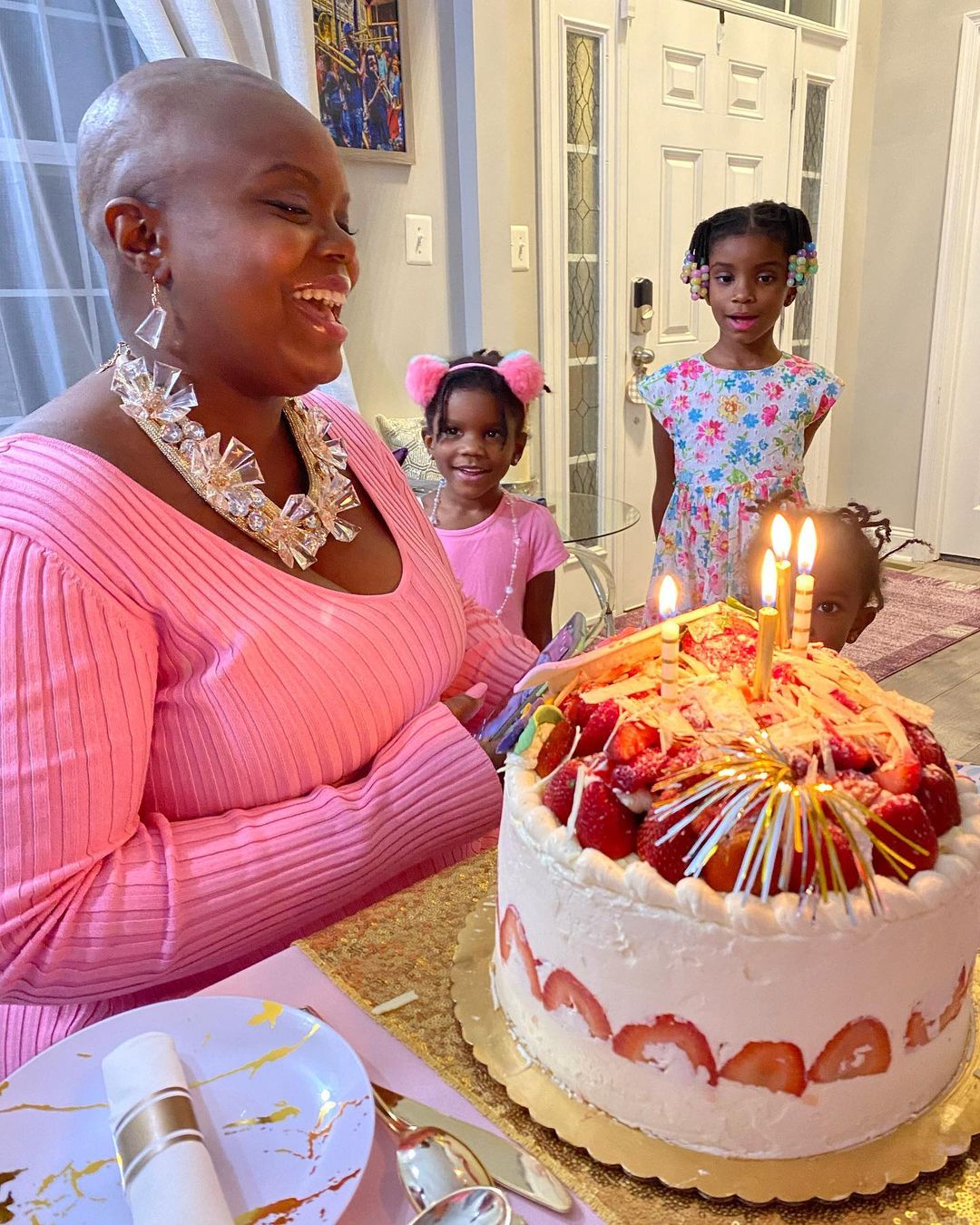
“Self-advocacy is key. I had to advocate for myself from the very beginning. I had to push to still receive a mammogram that my doctor had rightfully ordered because they were looking at my age and saying, "No, you don't need this biopsy. We're just doing the sonogram today." So, I had to push from the very beginning to even just receive the procedure,” she notes.
Her experience also shed light on the disparities in access to innovative treatments.
“In addition to that, came a moment during the mid-portion of my adjuvant chemotherapy when I actually found out about a new immunotherapy drug that had been released for triple-negative breast cancer. When I asked my oncologist at the time why I wasn't receiving it, he responded by turning his screen to me and my husband and saying, "It wasn't on my checklist." This response felt heartless,” Bolds-Johnson recalls. “At that point, I really understood that triple-negative breast cancer is the most aggressive form, disproportionately affecting Black women at a higher rate, with a mortality rate of 41 percent, diagnosed at earlier stages and younger ages than any other group of women.”
Despite stating that he had experience treating Black women with triple-negative breast cancer, he never welcomed a discussion with Bolds-Johnson about the new treatment or her interest in participating in a clinical trial.
“I had to fight, I had to advocate, but he still never ordered the drug. He knew from the very beginning that I wanted to be a clinical trial participant and that I was very much interested in clinical trial research, but that wasn't offered. I would send him emails through the portal about what I found, this trial I was eligible for, and he was just like, "No." He never even offered a clinical trial. So, after that, I made a complaint, spoke to his chief, fired him, and got another oncologist,” she adds.
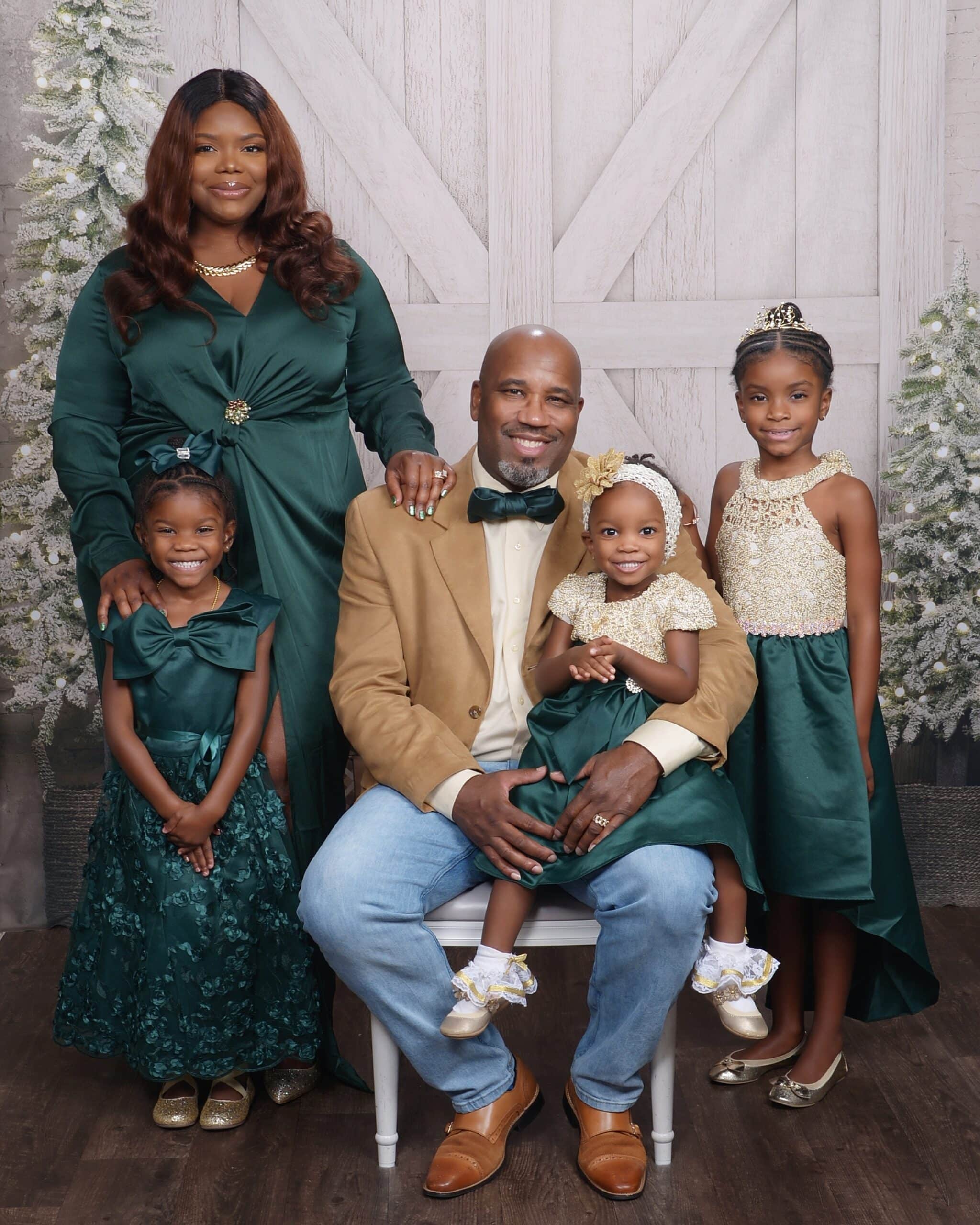
After persistent efforts, Bolds-Johnson finally gained access to the treatment she had been advocating for through participation in a clinical trial.
“Even though it was at a later stage in my treatment journey, I was still able to receive that drug because the principal investigator at that clinical trial stated, "No matter what, you need to receive this drug. This is what we're giving our patients with your type of disease from the very beginning,” Bolds-Johnson says. “So, I'm thankful for that. Along with my post-adjuvant chemo, I did well with it. Advocacy is very important. I don't think I would be sitting here talking to you right now, here today, if it were not for self-awareness, self-advocacy, and also self-breast exams. I would not be sitting here today.”
Bolds-Johnson’s journey has shaped her perspective on the type of care and support women with triple-negative breast cancer need. "We need healthcare providers who understand our unique challenges and are willing to listen," she emphasizes. "Support groups and resources tailored to our specific needs can also make a significant difference."
As she continues her fight against triple-negative breast cancer, she remains hopeful and determined to raise awareness and advocate for better care for herself and others facing similar challenges.
"Don't be afraid to push for the care you deserve," she says. "Seek second opinions, ask questions, and educate yourself about your condition. Your health is worth fighting for."





